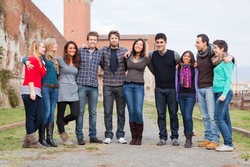Urban self-organising communities
Since urban problems are increasingly global, solutions will depend on citizen participation and knowledge sharing. Researchers expect a new class of organisation to arise, able to articulate citizen interests and support the community. The EU-funded URBANSELF (A north-south-network on urban self-organisation and public life in Europe, India and China) project examined urban self-organisation. In particular, the team studied the principle's role in development of public dialogue, within and among the three study areas. Research methods involved comparative discussion and knowledge transfer, fostering innovative approaches to urban challenges. One branch of the discussion concerned social capital and common property resources, and collective actors, leading to the analysis of organisations. Researchers concluded that organisations fulfil numerous requirements, including connecting people without regard for administrative boundaries. Organisations also facilitate collective works and allow expression of political interests, thereby having a strong effect on cities. The team argued that urban governance should actively involve citizens' expertise, rather than training passive acceptance of expert authority. Sustainable development requires shared vision; sustainability cannot be achieved in cities where the majority of inhabitants are unrecognised by the administration. A first step involves inhabitants becoming participating citizens. URBANSELF also identified examples of effective solutions, most of which originated from slums. The team disseminated such solutions to stakeholders. The project articulated the necessity for urban community self-organisation. The illustrated examples of successful practice offer a template for future action.







